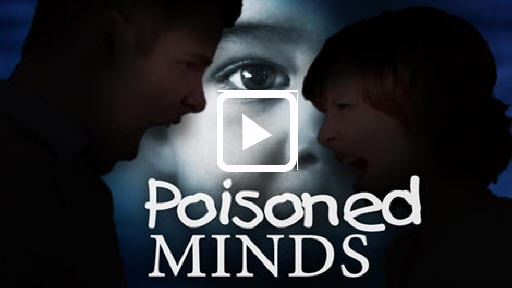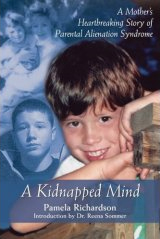![]()
Gender bias evident in parental alienation cases
Mothers are more likely to be the parent behind children's estrangement, yet fathers more often ordered into counselling, study finds
The Globe and Mail, Canada's largest national newspaper, by KIRK MAKIN, Justice Reporter, Saturday, March 28, 2009
JUSTICE REPORTER - A study of alienated children has found that mothers were significantly more likely to be the parent who emotionally poisoned their children than were fathers.
Toronto family lawyer Gene Colman told a Toronto symposium yesterday that of 74 court rulings that found parental alienation since 1987, the mother was the alienator in 50 cases. The father was the alienating parent in 24.
"I'm not trying to dump on moms," Mr. Colman told about 150 psychologists, family lawyers, mediators and activist parents. "I'm just saying, that is what the data reveal."
In parental alienation syndrome, an estranged parent systematically brainwashes a child into hating the other parent. The profile of the syndrome escalated over the past year, after three Ontario judges ordered that children be removed from an alienating parent and taken to U.S. clinics for deprogramming therapy.
Mr. Colman said that alienating fathers were twice as likely to be ordered to undergo counselling as were mothers in alienation cases - a finding that raises serious questions about whether judges are exhibiting gender biases.
Twelve of the 50 alienating mothers in his study were ordered into counselling, as compared with 13 of 24 fathers. "As social scientists will tell you, that is a high level of statistical significance in terms of differential treatment by gender," Mr. Colman said.
"As lawyers and judges, we have to be vigilant to make sure that we ... are not influenced by whether the mom is the alienator or the dad is the alienator. There should be no differential in how either gender is dealt with."
The other findings in Mr. Colman's study included:
The number of parental alienation cases has shot up from 21 between 1987 and 2000 to 53 between 2000 and 2008.
Fathers who had their alienated children switched from their homes were granted some form of access by the courts in a "much lower" percentage of cases than were mothers.
Fathers who alienate their children are somewhat more likely to have their children removed from their residence and relocated with the mother.
Mr. Colman said that of cases where the father was the alienator, children were ordered to switch to the mother's residence in 78 per cent of cases. In contrast, 62 per cent of the mothers who alienated their children had them switched to the father's home.
"It would seem that if you are the dad, you have a greater probability of having the residence changed on you," said Mr. Colman, founding editor of the Canadian Journal of Family Law and founding member of the Canadian Equal Parenting Council.











